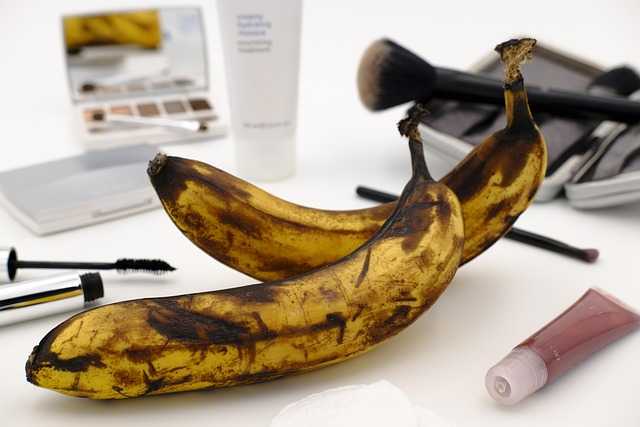Understanding Hair Health
Hair health isn’t solely about external care; internal nourishment plays a pivotal role. Let’s delve into how nutrition and deficiencies impact hair strength.
The Role of Nutrition in Hair Strength
Nutrition greatly influences hair strength. Proteins form the building blocks of hair strands, while vitamins like Biotin (B7) support hair growth and thickness.
Minerals like Iron carry oxygen to hair follicles, sustaining hair health. Omega-3 fatty acids keep the scalp hydrated.
Common Signs of Nutritional Deficiencies Affecting Hair
Hair often signals nutritional deficiencies. A lack of Biotin may cause hair thinning. Iron deficiency, prevalent among women, may lead to hair loss.
Without enough Vitamins A and E, hair might feel dry and brittle. Pay attention to these signs to address deficiencies quickly.
Key Nutrients for Strong Hair
Strong hair needs a combination of essential nutrients. These nutrients promote growth, strength, and overall hair health.
The Importance of Protein
Proteins are the building blocks of hair. Hair strands consist primarily of a protein called keratin. Consuming adequate protein can prevent hair from becoming weak and brittle.
Good sources include lean meats, eggs, and legumes. If the diet lacks protein, hair may experience increased shedding and slower growth.
Vitamins Essential for Hair Growth
Vitamins play crucial roles in maintaining vibrant hair.
- Vitamin A helps in the production of sebum, an oily substance that moisturizes the scalp.
- Sources include carrots, sweet potatoes, and spinach.
- Vitamin E, found in almonds and sunflower seeds, improves blood circulation in the scalp, promoting healthy hair follicles.
- Biotin (Vitamin B7) supports hair structure. It can prevent hair thinning and loss. Rich sources are nuts, oats, and eggs.
- Vitamin C aids collagen production, essential for hair strength. Citrus fruits and strawberries are excellent sources.
Minerals That Enhance Hair Strength

Minerals contribute significantly to hair resilience. Iron, found in red meat, spinach, and lentils, helps red blood cells carry oxygen to hair follicles, reducing hair loss risk. Zinc, present in shellfish and beef, supports hair tissue growth and repair.
It also helps keep the oil glands around hair follicles working properly. Selenium, available in Brazil nuts and whole grains, protects hair from damage caused by free radicals.
Incorporating these key nutrients into the diet promotes strong, healthy hair.
Best Foods for Hair Health
Choosing the right foods makes a significant impact on hair health. Including nutrient-dense options supports hair strength, growth, and overall resilience.
Protein-Rich Foods
Protein is essential for hair structure, as hair is predominantly made of a protein called keratin. I recommend incorporating lean meats like chicken and turkey for a high protein intake.
Other great sources are eggs, which are nutrient-rich and promote hair growth, and legumes such as lentils and beans that are excellent for vegetarians.
Vitamin-Rich Foods
Vitamins are crucial for hair health by supplying essential compounds that nourish the scalp. For vitamin A, I suggest consuming carrots and sweet potatoes.
Spinach and avocados are rich in vitamin E, which improves blood circulation to the scalp. Citrus fruits like oranges and strawberries provide vitamin C, aiding collagen production and strengthening hair.
Mineral-Rich Foods
Minerals play a key role in maintaining healthy hair by supporting various biological functions. Incorporate iron-rich foods like red meat, spinach, and beans to prevent hair thinning and loss.
Zinc sources such as:
- nuts
- seeds
- shellfish
promote hair repair and growth. Selenium, found in Brazil nuts, helps protect hair from damage.
Supplements Vs. Natural Sources
Choosing between supplements and natural sources of nutrients impacts hair health. Understanding the benefits and limitations can guide your decisions.
Benefits of Natural Nutrient Sources
Natural sources of nutrients provide a broad range of vitamins and minerals. Whole foods like vegetables, fruits, meats, and nuts contain fiber, antioxidants, and phytochemicals that work synergistically to improve hair strength.
For instance, Vitamin C from citrus fruits enhances iron absorption, vital for hair growth. Additionally, whole foods offer better nutrient absorption compared to isolated supplements.
When to Consider Supplements
Supplements may become necessary in cases of nutrient deficiencies or specific health conditions. If blood tests reveal low levels of essential nutrients like Biotin, Iron, or Vitamin D, supplements can address these gaps effectively.
Pregnant women, vegetarians, and people with certain medical conditions may require supplements. Always consult a healthcare provider before starting any supplementation to avoid potential interactions or overdosing.


 Bradley Frankirly is a distinguished article writer at Body Care And Matter, bringing a unique perspective to the world of health and wellness journalism. With a keen eye for detail and a passion for storytelling, Bradley crafts articles that resonate deeply with readers, offering both informative content and a relatable narrative.
Bradley Frankirly is a distinguished article writer at Body Care And Matter, bringing a unique perspective to the world of health and wellness journalism. With a keen eye for detail and a passion for storytelling, Bradley crafts articles that resonate deeply with readers, offering both informative content and a relatable narrative.

